The world we live in is in turmoil right now. With several wars taking place at the same time and many on the verge of starting, we are seeing a volatile situation globally. The number of people that have been killed in wars in the last couple of years alone is mind-boggling. Amidst all this chaos, we suddenly hear reports coming out about PM Modi Visiting Ukraine next month.
The recent reports of Indian Prime Minister Narendra Modi’s potential visit to Ukraine next month have stirred significant interest both domestically and internationally. This unexpected development comes at a time when Ukraine continues to grapple with the ongoing conflict with Russia. The visit, if confirmed, could signal a new chapter in India-Ukraine relations and have substantial geopolitical implications.
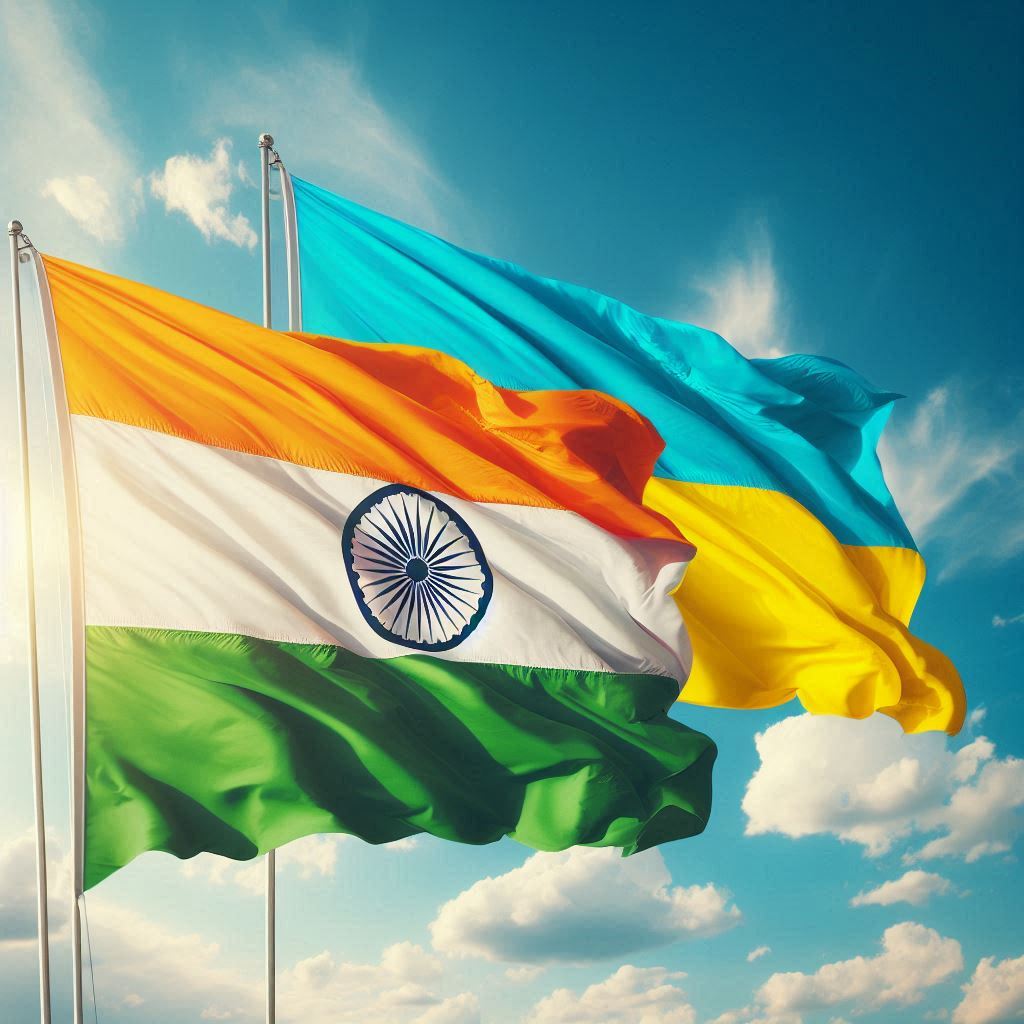
Why the Sudden Move?
The importance of PM Modi visiting Ukraine cannot be overstated from a geopolitical angle. The pressure from a nation like the U.S. is not something to joke about. We have faced the backlash of sanctions once before and we narrowly escaped bankruptcy because of them after we tested our nuclear weapons under the leadership of Dr A.P.J. Abdul Kalam and PM Shri Atal Bihari Vajpayee. Today, when we are the world’s 5th largest economy, we still have to maintain friendly relations with democratic nations. But speculations have been running wild since the reports started going around. Here is what we think.
Geopolitical Significance: Ukraine’s strategic importance in Eastern Europe and its ongoing conflict with Russia make it a focal point in global politics. The nation’s geographic location acts as a critical buffer between Russia and Western Europe, and it has been the site of significant military and political tension. By visiting Ukraine, the Indian Prime Minister aims to position India as a key player in the geopolitical arena, demonstrating India’s interest in promoting stability and peace in a region that is crucial for global security dynamics.
International Diplomacy: Modi’s visit could be aimed at showcasing India’s commitment to global peace and stability. India has historically maintained a neutral stance in international conflicts, emphasizing dialogue and peaceful resolution. The Indian PM’s presence in Ukraine could be seen as a gesture of solidarity with a nation under duress, while also advocating for diplomatic negotiations to resolve the conflict. This move aligns with India’s broader foreign policy goals of enhancing its diplomatic influence and reinforcing its image as a responsible global actor committed to upholding international law and order.
Economic Interests: Strengthening ties with Ukraine could open new avenues for trade and economic cooperation, particularly in sectors like defense, technology, and agriculture. Ukraine is known for its advanced defense technology and agricultural products, which are areas of significant interest to India. Enhanced bilateral relations could lead to increased trade, investment opportunities, and technological collaboration. For instance, India could benefit from Ukraine’s expertise in defense manufacturing and agricultural technology, while Ukraine could gain access to India’s vast market and investment potential. This economic cooperation could not only boost both economies but also create a stronger foundation for long-term strategic partnerships.
Is Modi Visiting Ukraine the Biggest Move in the World?
The potential visit of the Indian Prime Minister to Ukraine is indeed a significant move on the world stage. Here’s why:
High-Profile Engagement: As one of the most prominent leaders in the world, PM Modi’s visit would draw international attention and could influence global diplomatic dynamics. The presence of the Indian PM in Ukraine, a nation currently embroiled in a major conflict with Russia, would underscore the gravity of the situation and India’s commitment to engaging with key global issues. Such a high-profile engagement would not only highlight India’s active participation in international affairs but also position India as a country willing to take bold steps in addressing global crises.
Conflict Mediation: India has traditionally maintained a neutral stance in global conflicts. This visit could position India as a mediator in the Ukraine-Russia conflict, enhancing its role as a global peace broker. India’s historical policy of non-alignment and its emphasis on peaceful resolution of disputes make it a credible and impartial mediator. Modi visiting Ukraine could pave the way for India to facilitate dialogue between Ukraine and Russia, aiming to de-escalate tensions and promote a negotiated settlement.
Strategic Alliances: Strengthening ties with Ukraine could balance India’s relationships with other global powers, including the US and Russia, showcasing India’s strategic autonomy. Engaging with Ukraine allows India to assert its independence in foreign policy, demonstrating that it can forge strategic alliances based on its national interests rather than external pressures. This move could also help India diversify its strategic partnerships, reducing over-reliance on any single global power. By fostering a strong relationship with Ukraine, India can enhance its geopolitical leverage, ensuring that it remains a key player in international politics.
Reactions from Western Countries
The Western response to PM Modi visiting Ukraine is likely to be mixed, reflecting a blend of support and cautious optimism.
Supportive Stance
Many Western countries, particularly those in the EU and NATO, might view PM Modi visiting Ukraine positively. This visit could be seen as a significant alignment with their support for Ukraine against Russian aggression. Western nations have been steadfast in their backing of Ukraine, providing military, economic, and humanitarian aid to counteract Russian advances. India’s engagement, symbolized by PM Modi visiting Ukraine, would be perceived as a reinforcement of international solidarity and a powerful statement against aggression and violation of sovereignty. This supportive stance underscores the shared values of democracy, territorial integrity, and the rule of law, which are central to the Western alliance’s objectives in the region.
Cautious Optimism
While welcoming India’s involvement, some Western countries might also approach PM Modi visiting Ukraine with cautious optimism. Despite India’s significant global standing and potential to influence diplomatic outcomes, there remains a historical context to consider. India has maintained a long-standing relationship with Russia, marked by strategic partnerships and defense cooperation. Additionally, India’s policy of non-alignment, which emphasizes strategic autonomy and balanced relations with major powers, might lead to a nuanced reception. Western countries might be optimistic about India’s potential role in mediating peace or reducing tensions, yet they would remain watchful of how India navigates its delicate diplomatic balance. PM Modi visiting Ukraine could signal a shift towards a more pronounced stance against aggression, but the West would remain attentive to how this move impacts broader geopolitical dynamics, especially in the context of India’s ties with Russia.
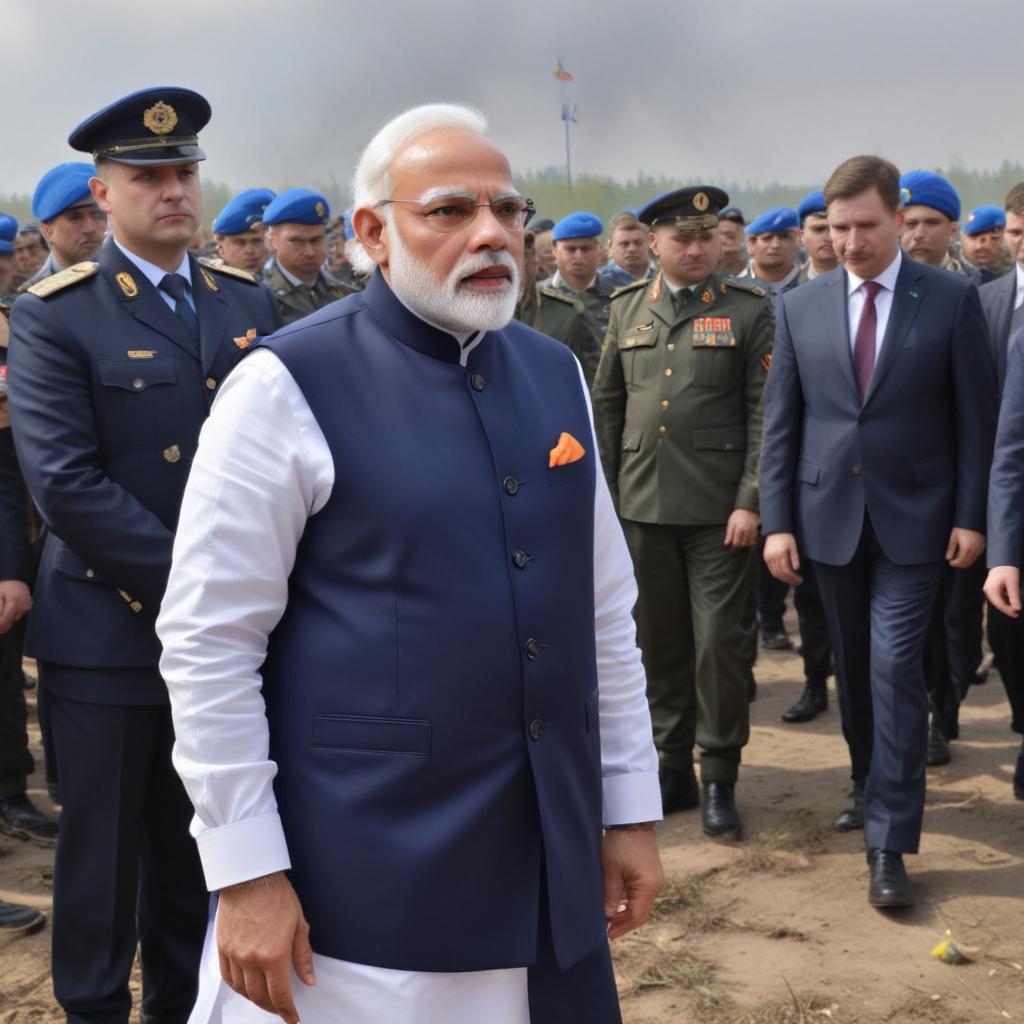
Is the PM’s Visit to Ukraine Inspired by US Pressure?
States has been actively seeking global support for Ukraine and might see India’s involvement as a strategic win. Given the US’s significant geopolitical influence and its strong stance against Russian aggression, many analysts suggest that Washington might be encouraging New Delhi to take a more visible role in supporting Ukraine. This could align with the US’s broader strategy of rallying international allies to isolate Russia and bolster Ukraine’s defense capabilities. However, it is important to note several key aspects of India’s foreign policy that indicate a more nuanced motivation for the Indian Prime Minister’s potential visit.
Independent Decision-Making: India has a long-standing tradition of independent foreign policy. Since its independence, India has consistently charted its own course in international relations, often opting for non-alignment and strategic autonomy. PM Modi’s visit, while potentially aligned with US interests, is likely based on India’s own strategic calculations. This decision reflects India’s assessment of its national interests, regional security concerns, and long-term diplomatic goals. India has always prioritized its sovereignty in foreign policy matters, ensuring that its actions serve its strategic interests without undue external influence.
Balancing Act: By engaging with Ukraine, India can balance its relations with both the US and Russia, maintaining its diplomatic autonomy. India has strong historical ties with Russia, particularly in defense and energy sectors, and has managed to maintain a balanced relationship with both Western powers and Russia. The Indian PM’s visit to Ukraine could be seen as a strategic maneuver to uphold this balance. Engaging with Ukraine allows India to demonstrate its support for international peace and stability, while also signaling to the US that it is willing to participate in global efforts to address significant geopolitical issues. Simultaneously, this move does not necessarily alienate Russia, as India can leverage its longstanding relationship with Moscow to advocate for dialogue and peaceful resolution. This balancing act underscores India’s adeptness in navigating complex international dynamics, ensuring that it remains a pivotal player on the global stage while preserving its strategic interests.
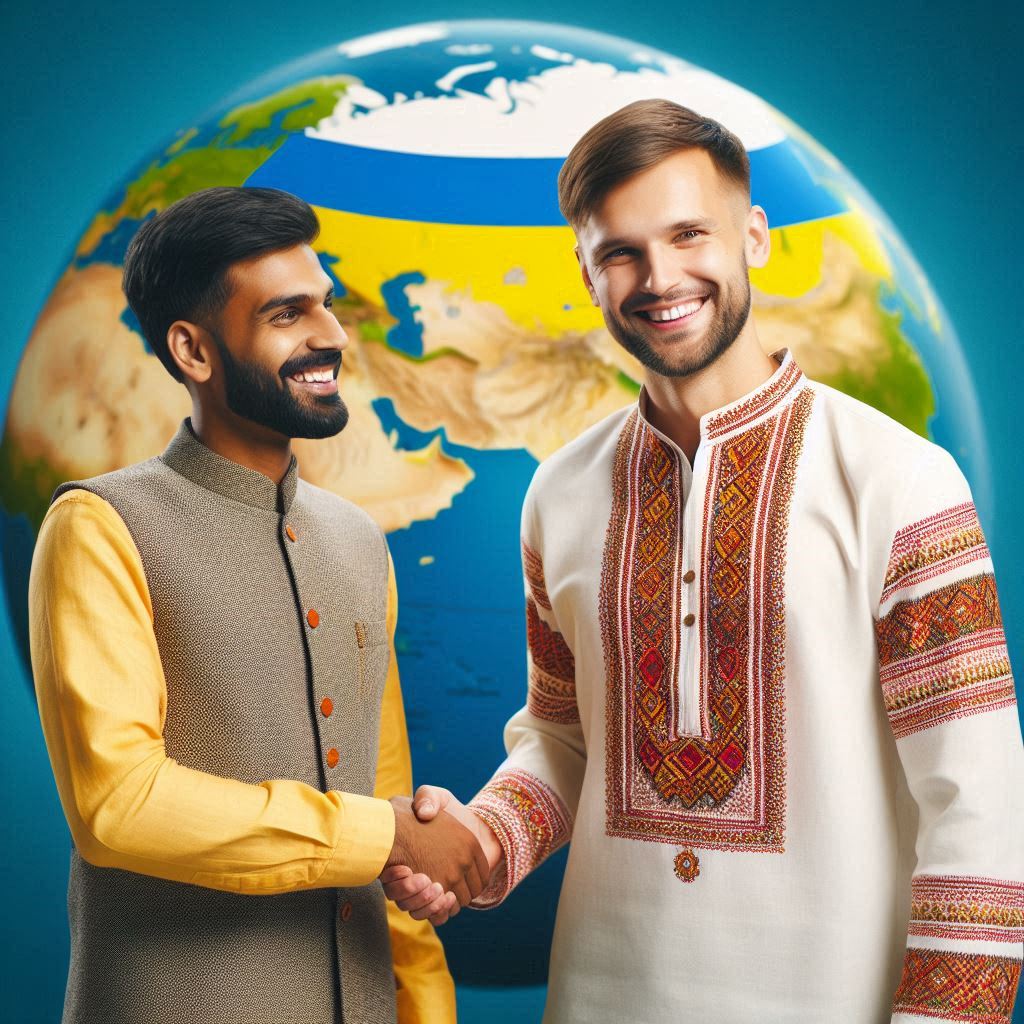
History of India-Ukraine Relations over the Years
India and Ukraine have shared cordial relations since Ukraine’s independence in 1991. Focus especially on the word ‘Cordial’. This has a lot to do with India’s never-ending partnership with Russia and also, PM Modi’s recent visit to Russia where he was awarded their highest civilian award and was seen hugging Russian President Vladimir Putin. The United States and Ukraine were furious as Russia had recently attacked Kyiv with a missile that had landed near a children’s hospital.
However, even after everything, over the decades, both nations have built a strong foundation of bilateral ties based on mutual respect and cooperation.
Economic Ties: Trade between India and Ukraine has been robust, with India importing agricultural products and defense equipment from Ukraine. Ukraine, known for its fertile soil, has been a key supplier of agricultural goods such as wheat, corn, and sunflower oil to India. Additionally, Ukraine’s advanced defense manufacturing capabilities have made it a significant partner for India in terms of military hardware and technology. The economic relationship has been mutually beneficial, providing India with essential commodities and defense equipment, while offering Ukraine access to one of the largest markets in the world.
Cultural Exchange: There has been a steady exchange of cultural and educational programs between the two countries, strengthening people-to-people ties. Indian culture, including its music, dance, and cuisine, has found a welcoming audience in Ukraine. Similarly, Ukrainian cultural elements have been appreciated in India, fostering greater mutual understanding and appreciation. Educational exchanges have also played a vital role, with students from both nations pursuing higher education in each other’s universities. These cultural and educational interactions have deepened the bonds of friendship and promoted a richer understanding of each other’s traditions and values.
Diplomatic Engagements: Regular high-level visits and diplomatic dialogues have marked the bilateral relationship, focusing on cooperation in various sectors. Over the years, numerous high-profile visits by leaders and diplomats from both countries have paved the way for stronger ties. These engagements have covered a wide range of issues, from trade and defense to technology and healthcare, reflecting a comprehensive and multi-faceted relationship. The ongoing dialogue has ensured that both nations remain committed to exploring new avenues of cooperation, addressing mutual concerns, and enhancing their strategic partnership.
Speculative Conclusion for PM Modi Visiting Ukraine
If PM Modi’s visit to Ukraine materializes, it could mark a historic moment in international diplomacy. Such a visit could have several significant implications.
Enhance India’s Global Standing: The visit would position India as a key player in global peace and conflict resolution. By actively engaging in the Ukraine crisis, India would demonstrate its commitment to fostering international stability and peace. This proactive involvement could elevate India’s diplomatic stature, showcasing its ability to mediate and contribute constructively to resolving global conflicts. As a nation that has often advocated for peaceful dialogue and negotiations, India’s role in Ukraine could reinforce its image as a responsible and influential global actor.
Strengthen Bilateral Relations: Modi’s visit could open new avenues for cooperation between India and Ukraine, benefiting both nations economically and strategically. Enhanced diplomatic ties could lead to increased trade, investment, and technological exchanges. For instance, India could explore joint ventures in Ukraine’s defense sector, agricultural technology, and information technology. Conversely, Ukraine could benefit from India’s vast market and investment potential. Strengthening these bilateral relations could provide both countries with economic growth opportunities and strategic advantages, fostering a deeper and more resilient partnership.
Influence Geopolitical Dynamics: The visit has the potential to alter the balance of power in Eastern Europe and influence global diplomatic strategies. India’s engagement with Ukraine could send a strong message to the international community about India’s strategic intentions and its willingness to play a significant role in regional geopolitics. This move could also impact India’s relationships with other major powers, such as the United States and Russia, demonstrating India’s capability to balance its diplomatic ties and assert its strategic autonomy. Furthermore, India’s involvement in Ukraine could encourage other nations to adopt more balanced and inclusive approaches to conflict resolution, potentially reshaping global diplomatic norms and strategies.
For more information, click here.
Our Opinion:
Most of the Indian Modi supporters would call this a “Masterstroke by Modi Ji, right?
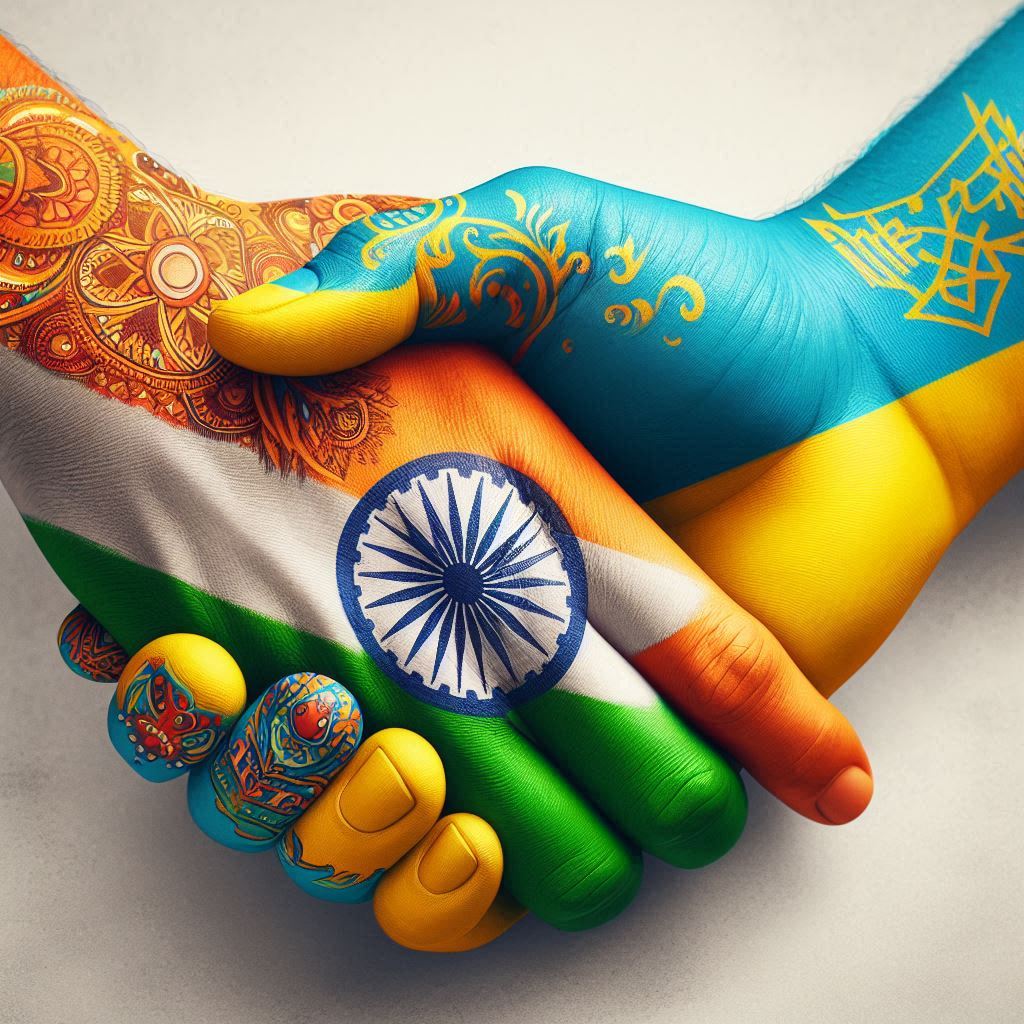
Well, we think the opposite. We think that it was high time that an Indian PM visited Ukraine. Since the country’s birth in 1991, NO Indian PM has ever visited the country. No matter how strong the PM’s standing in the ruling government was, there was nobody who wanted to be on the wrong side of the Russian aggression.
Also, we do not betray our friends. We have always looked at the Russian Federation as a friend of India. They have stood by us in our most difficult times and in a way, everything that India (represented by the Indian PM) is doing, is going to bring the best outcome for Russia as well.
Vladimir Putin has not yet reacted to the reports but this is something that everyone in the world is going to talk about for the next whole month. The man knows how to make headlines and he has done it again.
We would love to see how this meeting ends and what it brings to all three countries involved.
Till then, you can trust us for all the right information about everything new.
This is Team New India
Signing off…
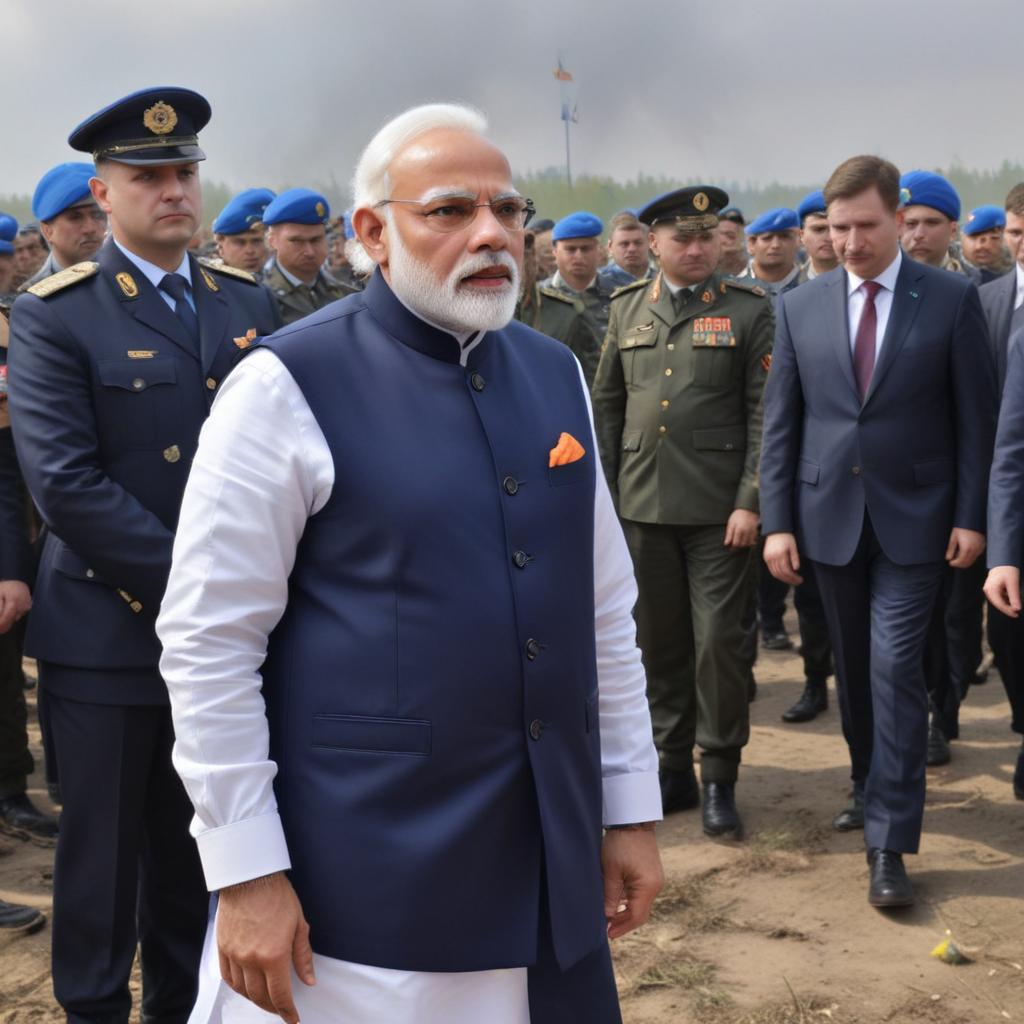
Leave a Reply